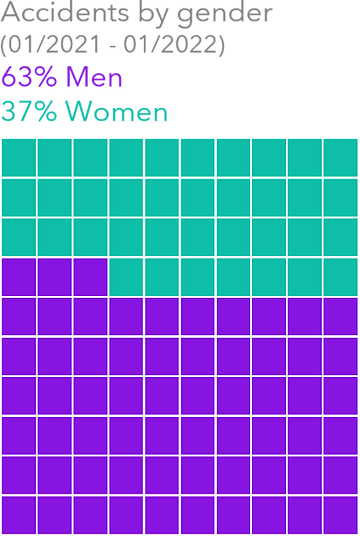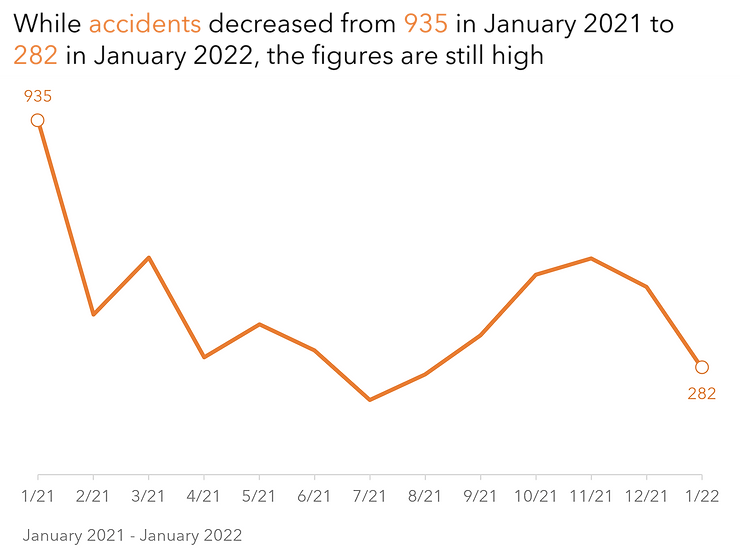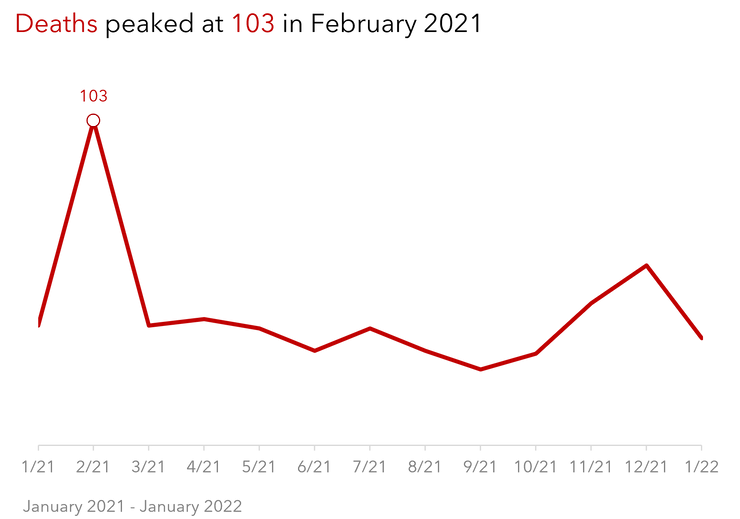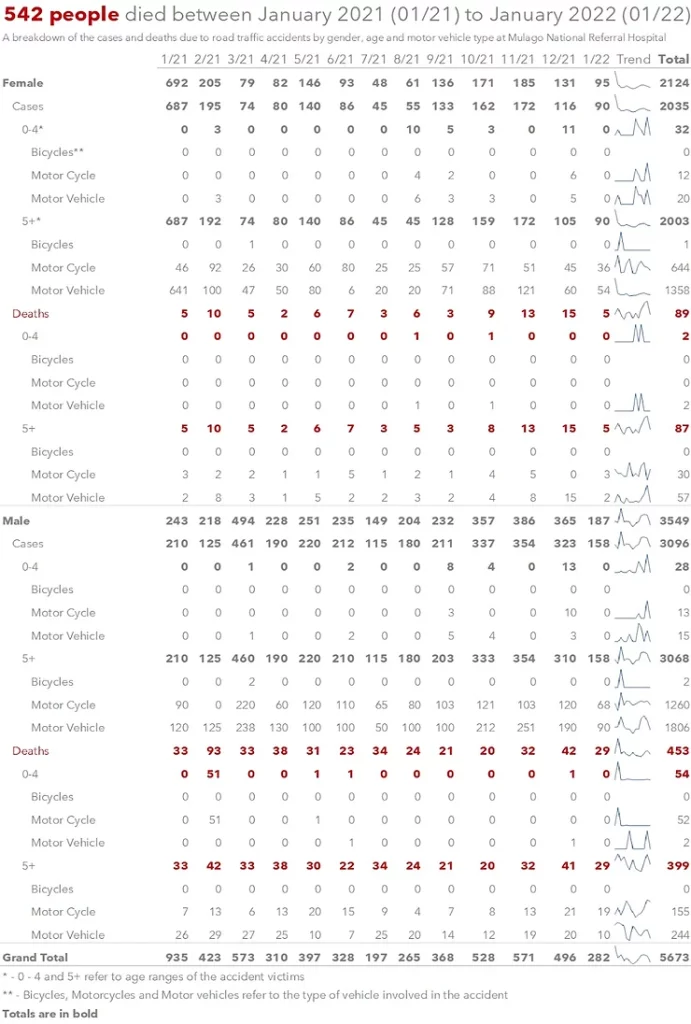On 4th May 2022, a bus overturned along the Kampala-Fort Portal road, Uganda, killing 20 people and injuring several others. Unfortunately, this news is as tragic as it is familiar. Despite Uganda’s perennial high prevalence of road traffic accidents, our government has not implemented and enforced any common-sense policy to stop this carnage. Uganda’s risk of death from road traffic accidents (RTAs) is high not only because of the lackluster efforts of our policymakers and law enforcement, but also the new and irregular availability of emergency care services. The infancy and non-uniformity of emergency care services in the country means the kind of care one gets both at the accident scene and in the Accidents and Emergency unit is not standard.
Skeptical about the severity of the problem? Don’t just take my word for it. Take theirs. Or theirs. Or this excerpt from Uganda Police Force Annual Crime Report, 2020:

Excerpt from Police Crime Report 2020
About a year ago, we were in a similar situation, mourning the loss of 10 lives in a road accident along Kasese Road that also injured 33 people. In a 2021 article, CGTN Africa cited Uganda Police statistics estimating about 20,000 road accidents in Uganda every year causing more than 2,000 deaths.
However, it is hard to know where all these numbers are from, so I decided to do a little digging of my own. I reached out to some colleagues at the Accidents and Emergency unit at Mulago National Referral Hospital (MNRH) to get data on accident victims in the recent past. I could only access data from January 2021 to January 2022.

Source: Accidents and Emergency unit at MNRH
Men are more accident-prone than women. Several socio-economic factors can explain this.

Waffle chart showing accidents by gender

Source: Accidents and Emergency unit at MNRH

Source: Accidents and Emergency unit at MNRH
Numbers do not lie. We have a road and traffic safety problem.
While I did not have good granular age data in my dataset, it is important to note that RTAs usually claim the lives of young people aged 18-40 years of age. The people in this age bracket are also considered the most economically productive; therefore, RTAs are not only a public health issue but also an economic issue. This article elucidates this further.
RTAs tend to increase proportionately with urbanization because more roads and more cars increase the likelihood of accidents. This is why we need strong policy implementation, law enforcement, and stronger emergency care services now and in the future.
Accidents are unpredictable. However, there are a number of common-sense solutions that could lower the prevalence of road traffic accidents and make our roads safer:
In 2020, while speaking at the 6th Global Road Safety Week, the Minister of Works, Gen. Katumba Wamala, noted that speeding accounted for 36% of fatalities in Uganda.
5. Mark the roads better
6. Light up the roads
7. Ensure Boda Boda riders and passengers wear helmets
8. Ensure drivers and passengers in motor vehicles wear seatbelts
9. Strengthen the health system with an emphasis on decentralized emergency medical care. WHO’s Emergency care system framework is a good reference here
While we are making huge strides in emergency care services, the government must ramp up the capacity to match our high prevalence of RTAs (and other emergencies).
10. Implement periodic first aid training and certification for all Ugandans
Several lives of trauma victims can be saved during the golden hour
The term “golden hour” is commonly used to characterize the urgent need for the care of trauma patients. This term implies that morbidity and mortality are affected if care is not instituted within the first hour after injury.
11. Implement a Good Samaritan law to protect people who provide first aid
May the souls of all those who have lost their lives rest in peace, and may their loved ones find comfort.
I hope we can do better in the future.

Source: Accidents and Emergency unit at MNRH
If you are interested in how I prepared the data for analysis, here is the YouTube video I made:
If you want access to the raw data, here it is:
While I got the data used for this article from a credible source at MNRH, this data does not paint a holistic picture of the patient volumes and fatalities at the Accident and Emergency Unit at MNRH.
